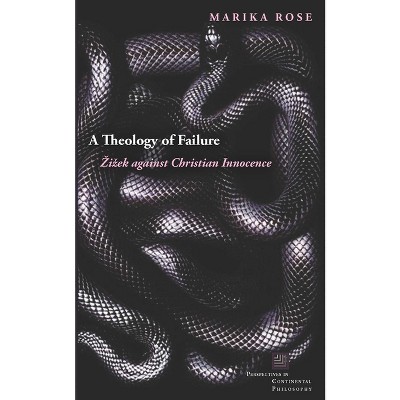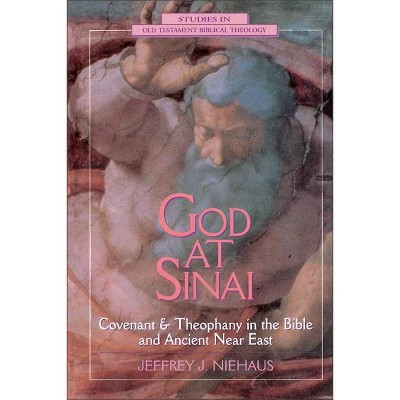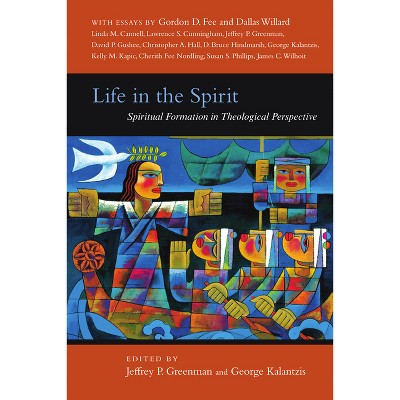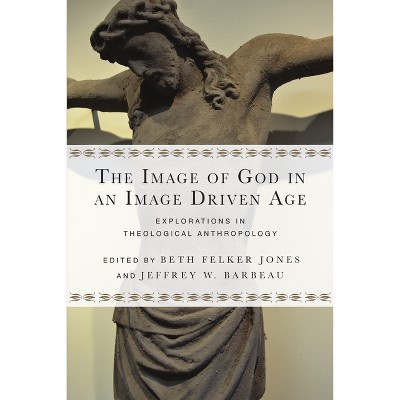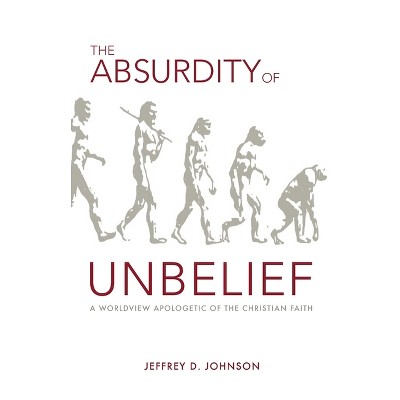Sponsored

The Failure of Natural Theology - (New Studies in Theology) by Jeffrey D Johnson (Hardcover)
In Stock
Sponsored
About this item
Highlights
- Aristotle's cosmological argument is the foundation of Aquinas's doctrine of God.
- Author(s): Jeffrey D Johnson
- 266 Pages
- Religion + Beliefs, Christian Theology
- Series Name: New Studies in Theology
Description
Book Synopsis
Aristotle's cosmological argument is the foundation of Aquinas's doctrine of God. For Thomas, the cosmological argument not only speaks of God's existence but also of God's nature. By learning that the unmoved mover is behind all moving objects, we learn something true about the essence of God-principally, that God is immobile. But therein lies the problem for Thomas. The Catholic Church had already condemned Aristotle's unmoved mover because, according to Aristotle, the unmoved mover is unable to be the moving cause (i.e., Creator) and governor of the universe-or else he would cease to be immobile. By seeking to baptize Aristotle into the Catholic Church, however, Thomas gave his life to seeking to explain how God can be both immobile and the moving cause of the universe. Thomas even looked to the pantheistic philosophy of Pseudo-Dionysius for help. But even with Dionysius's aid, Thomas failed to reconcile the god of Aristotle with the Trinitarian God of the Bible. If Thomas would have rejected the natural theology of Aristotle by placing the doctrine of the Trinity, which is known only by divine revelation, at the foundation of his knowledge of God, he would have rid himself of the irresolvable tension that permeates his philosophical theology. Thomas could have realized that the Trinity alone allows for God to be the only self-moving being-because the Trinity is the only being not moved by anything outside himself but freely capable of creating and controlling contingent things in motion.
Review Quotes
Jeffrey has given an even-handed assessment of Thomas and natural theology. I found this book to be incredibly helpful. Not everyone will agree with Jeffrey's assessment of Thomas and natural theology, but you won't be able to disagree lightly. I especially urge pastors to open this book and digest this important book.
-Dr. Brian BorgmanJeff homes in on the "fatal flaw" in Aquinas's theological method-namely, his natural theology. In an attempt to make philosophy the handmaiden of theology, Thomas sacrifices divine immanence on the altar of a pagan sort of transcendence that bears more affinity to Deism than to Christianity. In the end, Thomas's natural theology (which is based on a Greek metaphysic) functions as a kind of hermeneutical Procrustes' Bed upon which the Bible's testimony of a triune Creator-Redeemer is "resized" to match more closely the dimensions of Aristotle's Unmoved Mover. Such a methodology, as Johnson shows, distorts the biblical portrait of God the Father, Son, and Holy Spirit. Moreover, it undermines the sufficiency and authority of Scripture. I couldn't agree more! If you're entertaining contemporary calls to wed your Reformed theology to Thomism, I urge you to read Jeff's judicious critique.
-Dr. Robert Gonzales Jr.Jeffrey Johnson makes a compelling argument that ... we should pause in our embrace of the "Angelic Doctor." He explains that Thomas was an innovator in his day who was deviating from the classical theology he received, and in doing so, made a fatal flaw at the root of his theological method that produced an inferior fruit. If Thomas's natural theology begins with man's reason and never truly reconciles with revealed theology, then we can never have a proper knowledge of God and thus never truly experience eternal life (John 17:3).
- Dr. Ryan L. RippeeDr. Johnson's book serves as a crucial corrective to those who embrace all things Aquinas without really comprehending his philosophical and naturalistic theology. ... Johnson provides a necessary and needed warning to those who would wish to baptize Aquinas as an evangelical that, while there is much gold to glean in the writings of this theologian, his works should be carefully and biblically analyzed rather than unreservedly embraced. Pastors and scholars alike will greatly benefit from this deeper and broader survey of the philosophical theology of Thomas Aquinas.
- Jonathan J. RoutleyJeff Johnson's scholarly but gracefully readable text shows that his intellect notwithstanding, Aquinas's mingled metaphysics, mixed methodology, and promotion of "divine immobility" merit strong caution. There is much to consider and evaluate within the sprawling system called "classical theism"; Johnson's book helps us get solid footing for this task. ... This is the book the church has needed on this subject. It is an urgent read by one of our best theologians.
- Dr. Owen StrachanJeff's book is a welcome contribution to the debate that is and should be going on in Reformed circles about the value of Thomism in general and the usefulness of his natural theology in particular.
- Dr. Sam WaldronJeff Johnson has done the necessary spadework and gets down into the details of Thomas's thought regarding natural theology, and he writes in a clear and compelling way. ... This is a must-read whether you agree with the author or not. Future work on the significance of Thomas will necessitate reckoning with the argument set forth herein.
- Jeffrey C. WaddingtonShipping details
Return details
Trending Non-Fiction






